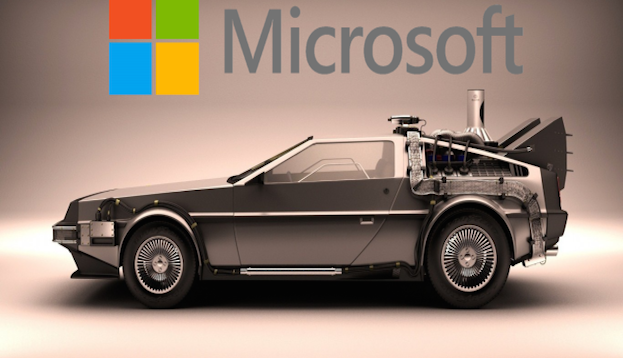Mention the word “DeLorean” and you might automatically think of Marty McFly’s stunning time machine from the Back To the Future movies from the 80’s. However, Microsoft could soon be adding a new twist to the term, as that’s what it’s naming its forthcoming “cloud-based” gaming service.
The company touched on the technology before back in April, showing developers how well big titles like Titanfall could easily run on the Azure cloud platform, without reducing performing in terms of lag.
Following up on that, Microsoft Research published a new report, indicating the company’s new initiative to create a cloud-based platform sometime in the future, which could be used by Xbox consoles and PC’s alike. Dubbed the DeLorean, it utilizes a “speculative execution engine” that makes it not only possible, but actually normal to deliver lag-free gameplay through the cloud – something neither OnLive or Sony have been able to nail down 100 percent, despite best efforts with the OnLive and PlayStation Now services, respectively.
Through the report, several gamers tested out the likes of classic games like Doom 3 and Fable 3 with the service, and couldn’t tell the difference between playing on the DeLorean set-up or playing on an Xbox 360 console. The service uses 250 milliseconds of latency, which could easily be a shake-up in the “cloud gaming” market.
Microsoft Research managed to pull this off through its “speculative” technology, as games can’t really be buffered similarly to videos on YouTube or Netflix. This is due to player activity, like when they shoot a weapon or jump across a chasm. Through this, the system can initiate a guessing game depending on actions, allowing the most accurate guess to unfold as players catch up, thus creating the effect that the game is still going strong, with no lag.
There is a downside to said tech, as it uses quite a bit of bandwidth, with a bitrate for the engine utilizing 1.5-4.5 times more than the typical player input. It’s unknown when Microsoft will patent and finalize the service, but you never know – it could easily be a surprise announcement at a press event down the road.
Source: TechCrunch

